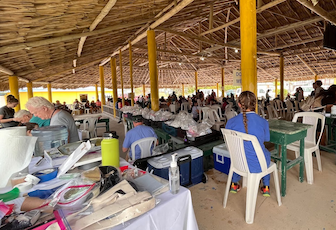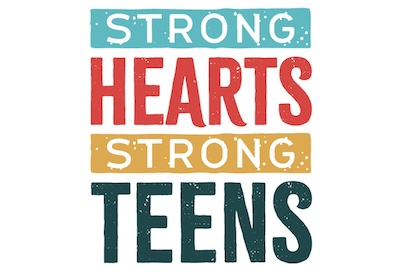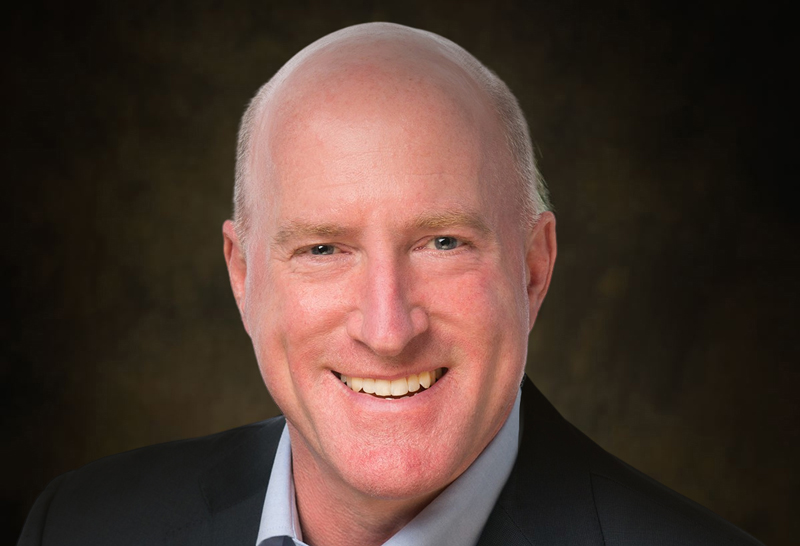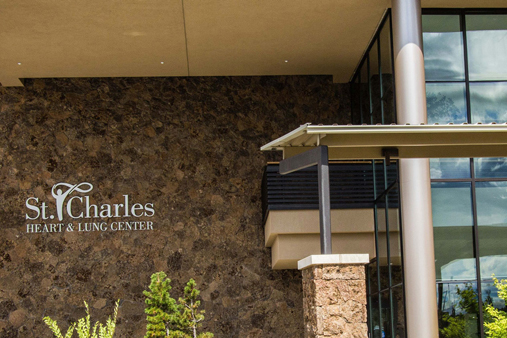A team of St. Charles caregivers recently returned from the Central American country of Belize, where they provided much-needed medical services free of charge to underserved rural populations.
The group was led by Dr. Les Dixon, a physician at the Madras Emergency Department who first traveled to Belize in 2017 with the Ohio-based nonprofit Partners for Medical Relief at the urging of his oldest daughter Chloe. After hearing her parents’ stories about past medical trips, the then-15-year-old encouraged her dad to take another one…and to bring her along.
“That first trip with Chloe was pretty impactful,” Dixon recalled. “The need for medical resources was huge, but the Belizean peoples’ outlook on life and how happy they were was pretty powerful.”
The father/daughter trip became an annual affair, and Dixon started recruiting his St. Charles colleagues to join them. This year, they brought their largest group yet, a mix of six health care providers and four of their family and friends who joined to help with logistics and support the mission. In February, the team traveled to Corozal, Belize, where health care resources are extremely limited and there is only one doctor for the 50,000 residents in the area.
Along with a larger group from Cincinnati, they were split up into two teams: One that put on clinics in rural villages, and a surgery team that worked out of a local hospital. Both teams did as much as possible to use local staff and to integrate with and support the local health care system.
“At the village clinics, you can come and get your blood pressure and blood sugar checked, get your vitamins, worm pills, get started on medication,” Dixon said. “But a lot of patients just want a provider who has some training who can look at them and go ‘Yeah, you’re doing well.’”
This year’s trip was the first for Matt and Julie Cline, an ER nurse and occupational therapist, respectively, who were part of the village team. Outside their clinics, hundreds of people would line up to wait to be seen, some having traveled for several days to get there.
Diabetes and hypertension were prevalent conditions in the villages, Matt Cline said, but eye problems were also common. “They don’t have much access to glasses there. Unfortunately, we didn’t have an optometrist on the team, but we brought down a lot of prescription glasses, readers (and) sunglasses,” he said. “There were people who had mentioned having headaches for years, and we would give them a pair of $2 reading glasses and it’d be a life-changer for them.”
Julie Cline was the first occupational therapist to join the team, and she immediately saw a huge need for therapy services.
“They hadn’t had much of a therapy focus before, but I felt like therapy was one of the most important services we provided,” she said.
Julie Cline saw an average of 25 to 30 patients a day, including many pediatric cases and children with autism, ADHD and speech and sensory disorders. When seeing adults, many of whom do hard manual labor, she encountered numerous neuropathy and work-related injuries causing chronic aches and pains.
“We talked a lot about positioning while working and sleeping, because many of them sleep on the ground or in hammocks,” she said. “I gave them exercises to do for stretching, flexibility and strengthening, and focused a lot on their posture. Just those little simple things that can make a huge difference in their everyday life.”
Darlene Merlich, a surgical technician based in Prineville, had the critical job of preparing the operating rooms, which due to lack of local staff are not open most of the year. This being her third trip to Belize, she came equipped and prepared to ensure the operating rooms were as close to familiar standards as possible, thanks in part to some donations from St. Charles.
“The surgical equipment they have in Belize is almost always donated and pretty old,” she said. “This year I was able to bring down three full trays of surgical instruments from St. Charles Prineville, and 12 suitcases full of donated surgical supplies. We went from just getting by with what was there to being able to provide a much better patient experience.”
In addition to helping people who need help, the trip provided valuable medical experience for the caregivers, Merlich said.
“It was great for me to get in there and sharpen skills while also learning new ones," she said.
The surgical team primarily did hernia surgeries and gallbladder removals, with the occasional biopsy or mass removal. Dr. David Carne, a general surgeon at St. Charles, said some of the patients had been living with hernias for years and even decades, and the free surgeries made a huge difference in their quality of life.
“It’s amazing what these people can put up with for years, and they've obviously been miserable,” Carne said. “They just don’t have any other alternative. It's hard because we usually have 200 to 300 people waiting to be seen on that first day, but we can only provide treatment to 70 to 80 of them.”
For the future, Dixon and Carne hope to increase surgical capacities on the trips.
“The need for elective surgery is huge,” Dixon said. “If we could find a way to grow our surgical presence to really bring down the sheer load of people who need surgery, that would be a huge service to the people of northwest Belize.”
Carne is fluent in Spanish, so he handled pre-op for patients himself: Meeting them, explaining the procedure, answering their questions, and generally making them more comfortable. This year, for the first time, he was also able to follow up with his surgical patients through WhatsApp after returning to United States.
“Being able to follow up and connect with them afterwards, it’s been a game changer and they’re so grateful,” he said.
All involved said they want to make the journey to Belize as often as possible and bring more providers, support staff and resources in future years. All, too, spoke of the need for more health care providers from any and all specialties.
“If you’re in the medical field, you enjoy helping people and want to give back in this way,” Julie Cline said, “this trip is one of the most rewarding things you can do.”
For more information on Partners for Medical Relief or its upcoming medical mission trips, visit www.partnersformedicalrelief.org.





